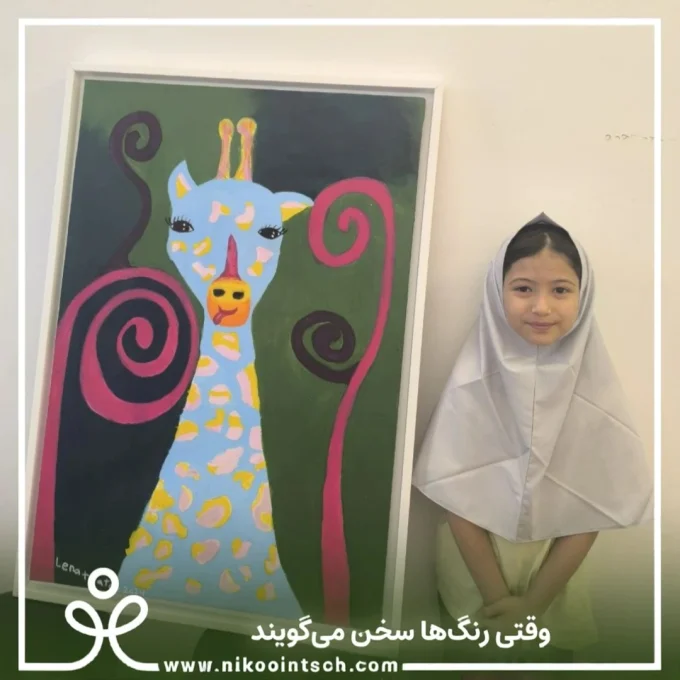Have you ever wondered why, as children, we found our entire world in our mother’s embrace, and nothing else mattered to us? Our mother was the one who gave us her time and moments selflessly, beautifying our world with her smile. But as time goes by and life’s responsibilities mount, do we give her the same attention and value she once gave us? Do we hold her in the same regard today that she once held for us?
A Story of Attachment and Motherly Longing
Children holding their mother’s hands with love, each calling out, “My mother!” These simple words are full of meaning, representing a pure feeling and an unbounded attachment. At that age, a child is unwilling to share their mother with anyone and perhaps cannot imagine that one day they’ll grow up and that relationship will change. They don’t yet realize how boundless and unconditional a mother’s love and attention truly are. Time passes, and that child grows into an independent adult, caught up in their own life. They no longer hold their mother’s hand, nor call out, “My mother,” but instead think, “My mother, for her…” Perhaps by now, their mother is old and frail, leaning on her cane, but her eyes still hold that endless love, concern, and affection. She still looks at her children with the same hope that they live in peace and happiness, even if she now receives less attention.
This image reminds us that motherly love knows no bounds, yet as we grow older, we sometimes forget that this love deserves a response. As children, our mother was our whole world, and we called out to her for everything. But today, when she may need us more than ever, we might find ourselves giving her less attention than before. Can we truly ignore this reality? Does this distance and neglect toward our mothers signify forgetting the love they once showered upon us?
This story serves as a reminder for each of us that amidst the busy course of life, we shouldn’t forget the love and care we owe to our parents. The mother who once devoted her life to her child may now need that same love and attention. She may be the same child from our past, now wearing a different robe and in a worn-out body, in need of us.
How Can We Deepen Our Love for Our Parents?
Reflect on this: can a mere phone call express our love for our mother or father? Or does this love require real presence and heartfelt moments? When they are by our side, they feel more alive and valued.
Perhaps by visiting them, listening to their stories, and even asking simple questions, we can show them that they still matter to us. This return to our roots, this loving gaze, can wash away the fatigue of their lonely days and bring them renewed hope.
Ways to Build a Better Connection with Our Parents
۱. Attention to Details: Ask them how they are and listen carefully to what they say. Sometimes, simple and ordinary words reveal pain or worry that needs your care and attention.
۲. Spending Time Together: Go for a simple walk with them or watch a movie together. These seemingly insignificant moments can be like a treasure of love and care for them.
۳. Expressing Emotions: Saying something as simple as “I love you” or “You mean so much to me” can mean more to them than countless other gestures.
The Hidden Gift of Life
Life is full of commitments and concerns, but amidst it all, can’t we dedicate even a moment of our day to our parents? Can’t we at least visit them once a week and remind them that they still hold value in our lives? Perhaps we haven’t thought about it enough. Maybe we’ve assumed they don’t need us. But is this really true? Do we check in on them often enough? Are we aware of their needs?
Let me ask you: when was the last time you looked at your mother or father with love and told them how much they mean to you? Do they know you care and are there for them? These moments may seem short and simple, but they mean the world to them.
The Role of Indirect Learning in Moral Upbringing of Children
Indirect learning is one of the most effective methods for instilling moral values in children. They observe the behavior of their parents and those around them to learn ethical and social values. The image above illustrates how young children mirror their mother’s behavior and develop a deep bond with her. This strong connection offers them the opportunity to learn about kindness, caring for others, and respect for parents without direct instruction.
In other words, the actions and love of parents serve as powerful role models in shaping the character and moral values of children. When a child witnesses their mother’s loving and selfless care, values like respect, kindness, and consideration for others become ingrained in them. Later in life, they will replicate these behaviors.
This story serves as a reminder that each of our actions as parents is a lesson for our children. Rather than hearing advice, they learn by watching our actions. So, if we want our children to grow up to be compassionate, respectful, and responsible individuals, we need to instill these qualities in them indirectly through our actions.
In conclusion, this image serves as a gentle nudge to each of us. Amidst the journey of life and its daily routines, let’s not forget the love and attention we owe our parents. The mother who once devoted everything to us now needs that same love and care she once freely gave. Let’s set aside time for those who dedicated their lives to us. This is not a duty; it’s an opportunity to show gratitude and acknowledge a love that we may never fully repay.












